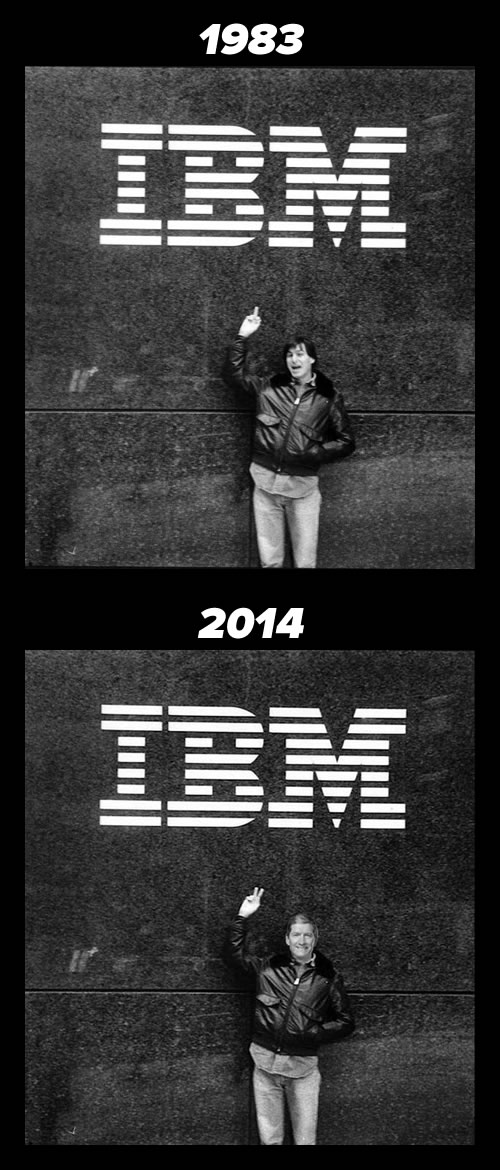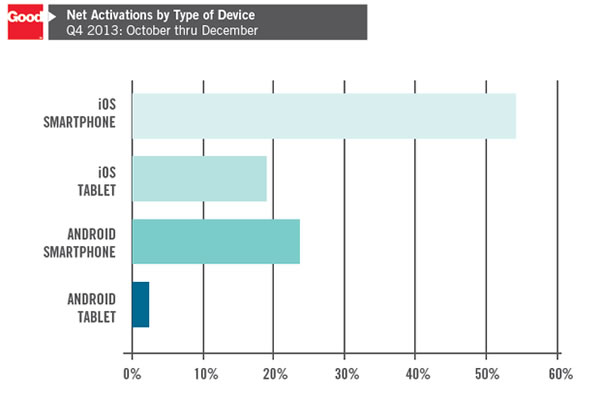
On Tuesday, Apple and IBM announced their partnership to “transform enterprise mobility through a new class of business apps”, combining Apple’s iOS ecosystem with IBM’s big data and analytics capabilities. According to Apple’s press release, the promised outcomes of this partnership are:
- a new class of more than 100 industry-specific enterprise solutions including native apps, developed exclusively from the ground up, for iPhone and iPad;
- unique IBM cloud services optimized for iOS, including device management, security, analytics and mobile integration;
- new AppleCare® service and support offering tailored to the needs of the enterprise; and
- new packaged offerings from IBM for device activation, supply and management.
This dramatic turnaround–Apple moving to a device leadership position and IBM moving to a service leadership position–created the conditions for today’s announcement of a strategic partnership–an event which is astounding to those who witnessed the 1980s and 1990s. Were it not for the tenacious independence of Apple and the business model agility of IBM, neither company would be around today to leverage one another.
Over at ZDNet, Larry Dignan asks: In IBM and Apple’s wake, what will team Android do? He quotes a Forrester analyst: “Seek partnerships that offer a credible alternative” and suggests that Google and Samsung would team up and partner with Accenture and HP, both of whom would be reluctant to become an Android-only consultant given how deeply iOS has made its way into the enterprise already:

He believes that SAP and Salesforce would prefer not to get involved with such an alliance, and that Oracle, who believe that Android ripped over Java in building their platform, would hope that Android fails in the enterprise.
In light of the announcement, BlackBerry shares fell by more than 10%. In its defense, Blackberry released an email statement saying that Apple and IBM’s partnership “only underscores the ongoing need for secure end-to-end enterprise mobility solutions like those BlackBerry has delivered for years,” and as the “clear leader” in the market, “enterprises should think twice about relying on any solution built on the foundation of a consumer technology that lacks the proven security benefits that BlackBerry has always delivered.”
Our reaction to that last statement:

